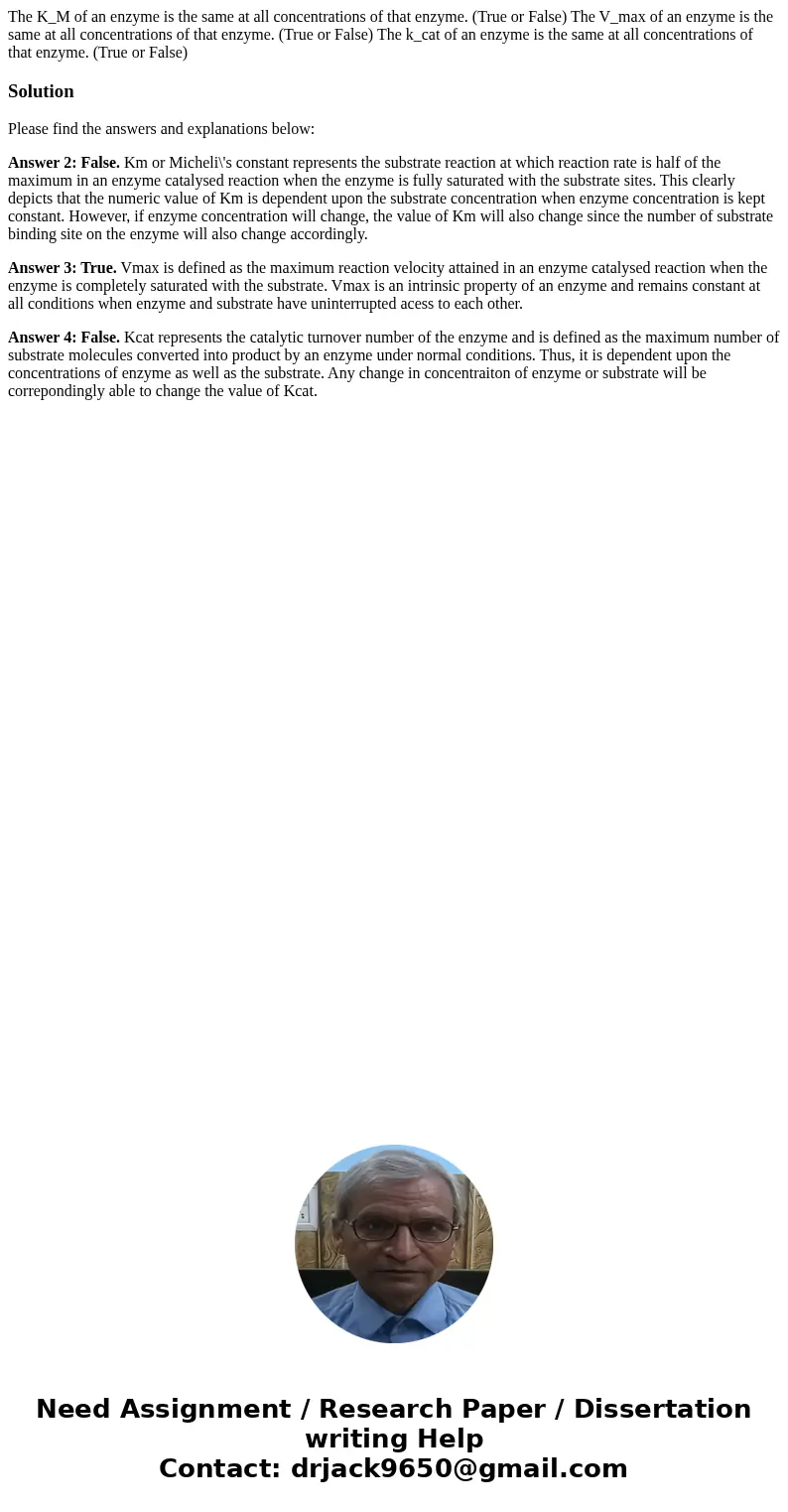The KM of an enzyme is the same at all concentrations of tha
Solution
Please find the answers and explanations below:
Answer 2: False. Km or Micheli\'s constant represents the substrate reaction at which reaction rate is half of the maximum in an enzyme catalysed reaction when the enzyme is fully saturated with the substrate sites. This clearly depicts that the numeric value of Km is dependent upon the substrate concentration when enzyme concentration is kept constant. However, if enzyme concentration will change, the value of Km will also change since the number of substrate binding site on the enzyme will also change accordingly.
Answer 3: True. Vmax is defined as the maximum reaction velocity attained in an enzyme catalysed reaction when the enzyme is completely saturated with the substrate. Vmax is an intrinsic property of an enzyme and remains constant at all conditions when enzyme and substrate have uninterrupted acess to each other.
Answer 4: False. Kcat represents the catalytic turnover number of the enzyme and is defined as the maximum number of substrate molecules converted into product by an enzyme under normal conditions. Thus, it is dependent upon the concentrations of enzyme as well as the substrate. Any change in concentraiton of enzyme or substrate will be correpondingly able to change the value of Kcat.

 Homework Sourse
Homework Sourse